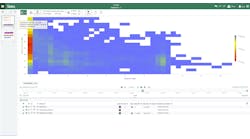This article was printed in the CONTROL's March 2009 edition.
I was at an ISA Section meeting in late January where ISA President Jerry Cockrell was the featured speaker. He was talking about the Certified Automation Professional program (CAP) and the Certified Control System Technician program (CCST), and he said, “What we’re trying to do is to build a profession here.” Later in the same evening, he and I were chatting, and I suggested we take a small survey of how many of the more than thirty ISA members had become automation professionals by accident. There was a forest of hands. Virtually no one had become an automation professional because they wanted to as a small child. They had all picked something else to do, even Cockrell himself. He studied electrical engineering when he returned from service in Vietnam, and his first job after college was working on avionics and flight controls for Rockwell Collins. Zap! Another good engineer caught in the automation trap. He’s never been able to get away since.
In last month’s Process Automation Hall of Fame feature, none of the five men profiled intended to become automation gurus. Once again, the sticky flypaper that is the automation profession got ‘em.
As a young man, I was offered a really good job with a company in Silicon Valley—back when it was just getting started—and I turned it down because I liked instrumentation and controls. Later, I was asked to join a dot-com startup that became wildly successful, but I turned it down because I was involved in a flowmeter startup company. Were those bad career decisions? No, not really.
The automation profession is remarkably attractive, and those who start generally stay with it without regret.
Cockrell and I tried to come up with a reason, and I think we did. It is that the automation profession, even at the lowest technician level, requires a very wide view of what is going on…a systems view, if you will. Every automation professional I have ever met is accustomed to thinking about the linkages between things and the way sensors, analyzers and controls are integrated.
As field sensors and controllers become more and more like building blocks, this is becoming a much more significant trait. Automation professionals will really become integration specialists. They will be the ones with the ability to integrate systems from the plant floor through the rest of the enterprise. That will be their profession, the one that Jerry Cockrell and the rest of us are trying to create.
So what’s important about this?
The study of complex systems is relatively new, but we know that complex systems do not interact the same way simple systems do. That’s one of the major reasons for the failure of alarm systems and trained operators to mitigate the disasters we’ve seen in the chemical and refining and oil and gas industries for decades now. And it is going to be one of the issues that is limiting our response to cyber events in control systems—automation software is too complex to bug-hunt all the potential security faults before the software is released.
This phenomenon is not, of course, limited to automation software. The world’s most used operating system is famously full of security holes and likely always will be.
To people of a certain cast of mind, the interaction, the integration, the complexity of systems involved in instrumentation, test and measurement, controls…all the automation disciplines…is simply too seductive to resist. That’s what got me. That’s what got Jerry. That’s what got us all. Welcome to the Hotel Automation. You can check out but you can never leave.




